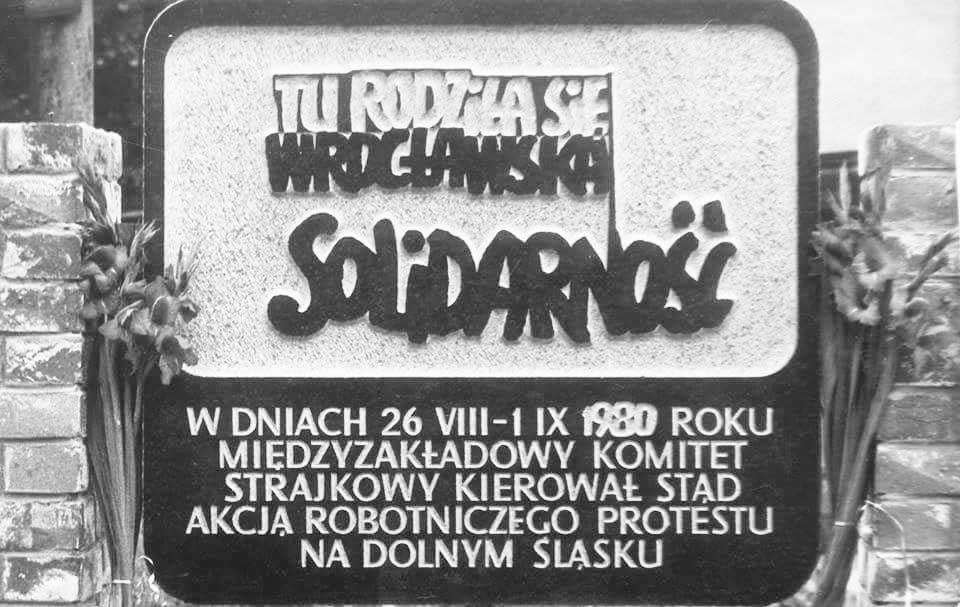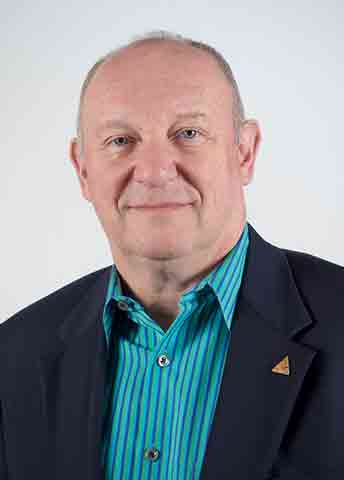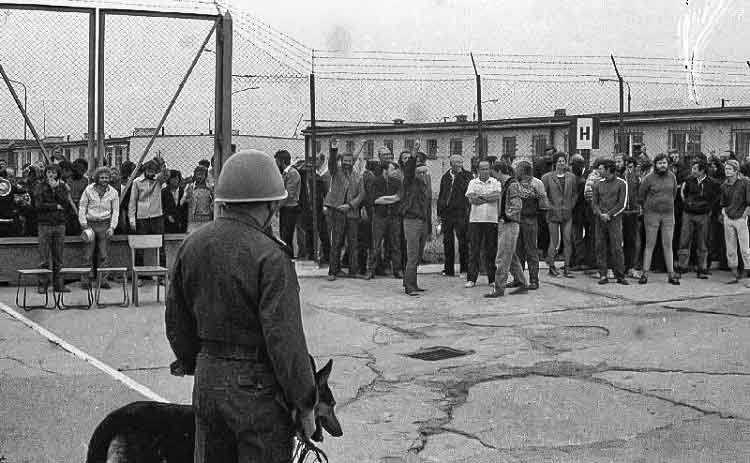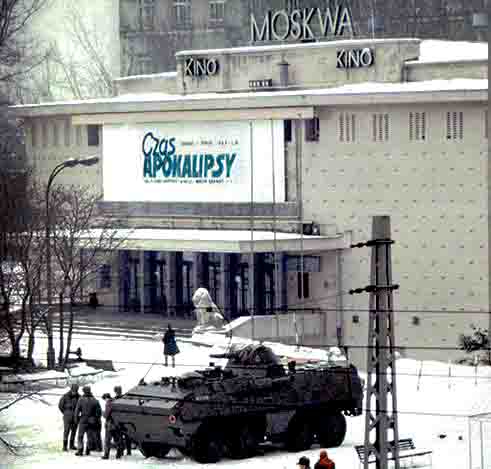I was involved in anti-communist activities before August 1980. It was at the Science and Production Center for Energy Automation (Centrum Naukowo-Produkcyjne Automatyki Energetycznej, CNPAE) in Wrocław, where I worked as an assistant designer right after graduation. CNPAE employed about 3,500 people in several departments: such as the Institute of Power Systems Automation, Production Plants, as well as the design office where I worked. It was there, in 1979, that we managed to take over power in trade unions comprising of young independent engineers and technicians. In preparation for the election of the union authorities, I carefully studied the statute and election regulations. Using this knowledge, I ensured that we chose our trusted man as the head of these trade unions, in place of an employee of the Security Service, who was also the head of the human resources department. It was the first time in the history of Wrocław that non-party members took over power in the existing trade unions. It happened a year before August 1980. Thanks to the fact that I was the coordinator of this action, I became known among employees, so when on August 26, 1980, MPK trams and buses did not leave the streets of Wrocław, in solidarity with the striking shipyard workers, employees asked me: what are we supposed to do?
August 26 around 4:30 am, employee of bus depot Nr. VII at ul. Grabiszyńska in Wrocław, Tomasz Surowiec, together with Bohdan Jetz and Czesław Stawicki, read the Gdańsk postulates and after a short discussion, the Inter-Enterprise Strike Committee (MKS) was formally formed. It was the first regional strike committee outside the sea coast, bringing together representatives of striking workplaces in Wrocław. It was headed by the driver Jerzy Piórkowski. The MKS fully supported 21 postulates of the shipyard workers striking in Gdańsk, which were published for the first time in Wrocław on August 23 in the "Dolnośląski Bulletin", published by Kornel Morawiecki. The news of the start of the strike spread all over Wrocław and soon all public transport stopped. Delegations from other workplaces started to arrive at the depot, as well as activists of the Wrocław opposition before August, such as Jarosław Broda, Stanislaw Huskowski, Piotr Starzyński and Krzysztof Turkowski. The workers welcomed them with open arms. They received substantive, organizational and printing support.
On August 27, 1980, the MKS issued Communication No. 1 entitled "To the inhabitants of Wrocław", edited, inter alia, by Jarosław Broda and Krzysztof Turkowski. The communiqué called on the authorities of the city of Wrocław to stop selling alcohol and to provide guarantees for the safety of activists of the strike committees and their families. MKS, which at that time had representatives of only about 10 workplaces, called for the delivery of sleeping bags and food products. Therefore, the next day, August 28, I went to MKS with a trunk full of food and two sleeping bags.
On August 28, Krzysztof Turkowski called the Gdańsk Shipyard and talked to Lech Wałęsa, whom he informed about the scale of the protests in Wrocław. This information sustained the striking shipyard workers. The next day, August 29, with the help of friends, I organized strikes in all branches of the Center. Then, as a representative of the strikers, I was delegated to the Inter-Enterprise Strike Committee, where I went on the morning of Saturday, August 30. I knew then that the strikes could last a long time, so I came to the depot at ul. Grabiszyńska with a borrowed sleeping bag, warm clothes and a supply of food. During the day, representatives of other workplaces were coming. It was then that I met Jarosław Broda, Jerzy Piórkowski, Zbigniew Przydzial, Hubert Hanusiak, Zbigniew Kopystyński, Tomasz Surowiec, Czeslaw Stawicki and many other representatives of striking workplaces. An information office was organized in one of the buses, which was run by Tomasz Surowiec. A strike guard was also appointed.
I spent the next 3 days and 3 nights at MKS. We tried to sleep in the buses provided for this purpose, although the atmosphere was very tense, as the whole area of the depot was surrounded by a cordon of militia armed to the teeth and ZOMO units, ready to intervene. Electricians from the depot found thick cables in insulation, which they cut into one meter long pieces and gave us to defend ourselves just in case.
On the premises of MKS, there was a small printing house based on a typewriter supplied by Jarosław Broda and printing frames by Tomasz Wacko. Distribution of messages, six in total, took place through opposition channels. They were scattered at the gates of striking workplaces and handed out over the fence of the depot. The head of MKS Jerzy Piórkowski gave interviews that day to journalists from the Reuters Agency and the New York Times.
The strike action met with enormous support from the inhabitants of Wrocław. They hung up banners, brought money, food, as well as paper and other materials necessary for printing. Two masses celebrated on August 29 and 31 by Fr. Stanisław Orzechowski, known to me earlier in the community of student discussion clubs as "Orzecha".
On Sunday, August 31, MKZ in Gdańsk signed the so-called "August Agreements", based on 21 postulates put forward by shipbuilders. Janusz Owczarek, the voivode of Lower Silesia, appeared on the premises of the Wrocław MKS, who signed safety guarantees for the strikers, but refused to provide a helicopter for several delegates who would fly to Gdańsk and authenticate information about the signed agreement, so we had to wait for the return of our envoys by night train, which followed September 1 at 5:30 a.m. Then they read the text of the agreement certified by Anna Walentynowicz and the end of the solidarity strike was announced. At that moment, MKS was represented by representatives of 176 workplaces from all over Lower Silesia. Then all those who were delegates of the workplaces automatically became members of the Regional Headquaters of the Independent Self-Governing Worker's Union, later renamed "Solidarity" (NSZZ Solidarność).
The next day, hard organizational work began, which continued until December 13, 1981, when martial law was declared and the first, genuine Solidarity of workers and intellectuals was dissolved. On that day, together with many of the activists mentioned above, I ended up in prison at ul. Kleczkowska in Wrocław, and then in the internment center in Grodków Śląski, in the province of Opole.
Translation from Polish by Andrew Woźniewicz, with the assistance of Google Translate.








